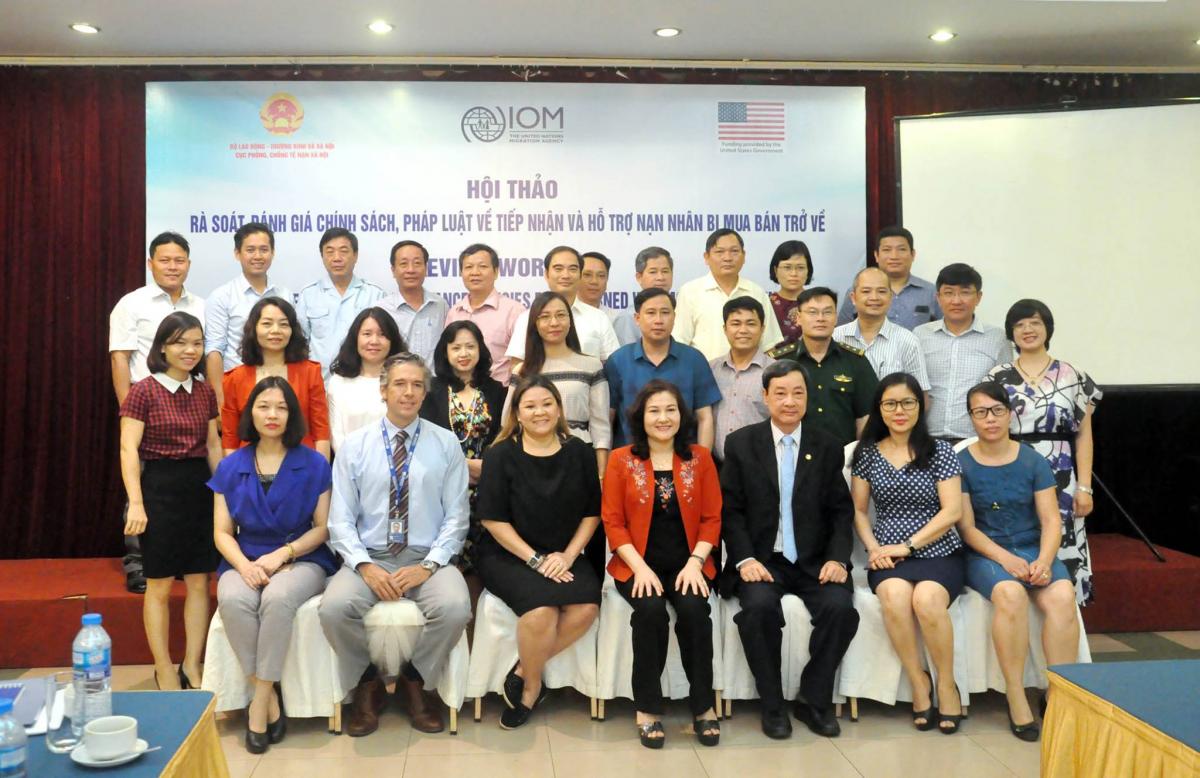-
Who We Are
WHO WE AREThe International Organization for Migration (IOM) is part of the United Nations System as the leading inter-governmental organization promoting since 1951 humane and orderly migration for the benefit of all, with 175 member states and a presence in over 100 countries. IOM has had a presence in Viet Nam since 1987.
About
About
IOM Global
IOM Global
-
Our Work
Our WorkAs the leading inter-governmental organization promoting since 1951 humane and orderly migration, IOM plays a key role to support the achievement of the 2030 Agenda through different areas of intervention that connect both humanitarian assistance and sustainable development. Across Viet Nam, IOM is concerned with the welfare and quality of life of the Vietnamese people, particularly migrant and mobile populations.
Cross-cutting (Global)
Cross-cutting (Global)
- Data and Resources
- Take Action
- 2030 Agenda
Review Workshop on Reception and Assistance Policies for the Survivors of Trafficking Co-hosted by IOM and the Department of Social Vice Prevention
Hanoi – Review workshop on reception and assistance policies for the survivors of trafficking co-hosted by IOM and the Department of Social Vice Prevention (DSVP).
Despite concerted endeavours of the government, the reception and assistance for victims of human trafficking, in reality, has fallen short of targets due to the limitations of the existing victim assistance policies and gaps from the implementation at localities. The statement delivered by Ms. Nguyen Thi Ha – Deputy Minister of Labour, Invalids and Social Affairs commenced and confirmed the rationale of the review workshop on reception and assistance policies for the survivors of trafficking co-hosted by IOM and the Department of Social Vice Prevention (DSVP).
Attending the workshop, as many as 100 officials from different ministries, 9 provinces with the acute situations of human trafficking, the mass media, US embassy and UN agencies focused on discussing the distinct challenges faced by the government and provincial actors in the implementation of policies on the victim reception and assistance. In particular, the issues revolve around the shortages of facilities for the victim accommodation at border guard stations, the low support allowance which can barely help the victims recover or reintegrate and bureaucratic procedures that hinder the victim’s access to assistance such as medical treatment, legal consultation or preferential bank loans. In addition to the calls for an increase in allowance, coverage and efficiency of the supports, the delegates also suggested the intensification of provisions concerned with communication, stressing the problems arising out of victims’ lack of information. Remarkably, the delegates insisted on the need of giving international organizations better empowerment to identify victims and establish assistance centres and at the same time, pushing forward legal researches to reduce the discrepancy between Vietnam and international legislations. The inputs contributed at the workshop would then be compiled and submitted to law-making agencies as official advice and references.
A report by the National Steering Committee on Anti-human trafficking indicated that there were about 7500 victims of trafficking rescued by the functioning agencies from 2012 to 2017. Roughly 90% of the victims are women and children while 80% of them are members of ethnic minorities.




